With a European Cup and Liverpool’s first league title now under our belt, it’s easy to forget where we were upon his arrival and the incredible progress our club has made under the superior management of Jurgen Klopp.
Let’s take a look back at the five years of progress under our meticulous manager and how he transformed a mediocre squad to become World, European and English champions and transformed a fan base plagued by years of doubt to one filled with unshakeable belief.
The ‘Almost Year’ and the Aftermath
With three games left in the 2013/14 season, Liverpool were odds-on favourites to win their first league title in a generation. Inspired by Luis Suarez and Steven Gerrard, a magnificent attacking team was ultimately undermined by defensive frailty.
Once again, we had to settle for the runners-up spot. While it was an exciting rollercoaster of a season, with some magnificent displays, conceding 50 goals was the Achilles heel that proved terminal. All of those magnificent displays ultimately resulted in familiar disappointment.
That was to be as good as it was to get for Brendan Rodgers’ admittedly valiant assault on the Premier League crown. The following season saw a team, now bereft of the departed Suarez, slump to 12 league defeats (versus six the previous season) score 52 goals (versus 101 the prior season) and collect a meagre 62 points – a telling 22 points less than the prior season.
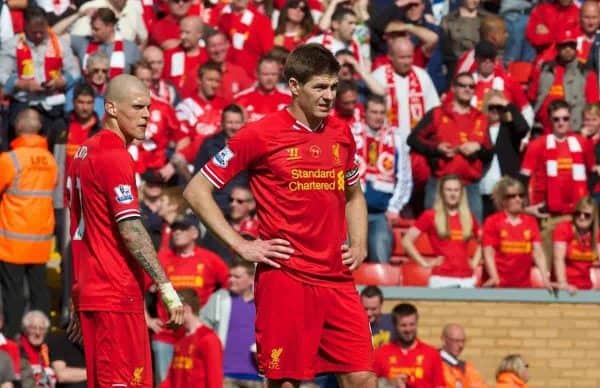
It was another example of a ‘nearly’ season which we hoped would be a catalyst for progress actually turn out to be yet another false dawn.
The final six games of Rodgers’ final full season of 2014/15 saw the team limp to one solitary 2-1 win over QPR, two draws against West Brom and Chelsea, and three defeats at the hands of Hull City, Crystal Palace and the embarrassment of a 6-1 loss to Stoke City in Steven Gerrard’s final game. It was 5-0 at half-time.
The writing was on the wall, but Rodgers maintained control for eight Premier League games of the 2015/16 season. Those eight games included a 0-3 home defeat to West Ham and a 3-1 defeat at Old Trafford. A home draw with Norwich and a derby draw at Goodison were sandwiched by a solitary win in six games at home to Aston Villa.
Liverpool were mired in mid-table with 12 points from eight games and a minus two-goal difference. The swashbuckling football of 2014/15 had been replaced by tactics that betrayed a coach now all at sea. When the mentality changes from the will to win to the fear of defeat, it’s almost always a formula for failure.
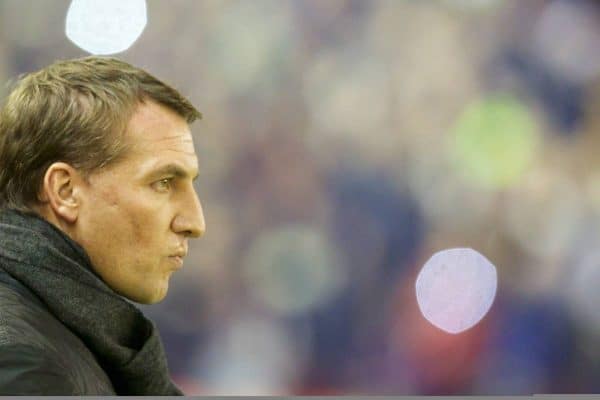
To no-one’s surprise, the axe fell. What was a surprise, was the announcement and name of the new manager to replace him. Liverpool had pulled off a stunning coup.
Jurgen Klopp had signed a three-year contract as the new manager of Liverpool Football Club.
A New Era
October 8 2015, will always remain the date etched into Liverpool folklore with the same warmth as December 14 1959 – the day Bill Shankly walked into Anfield.
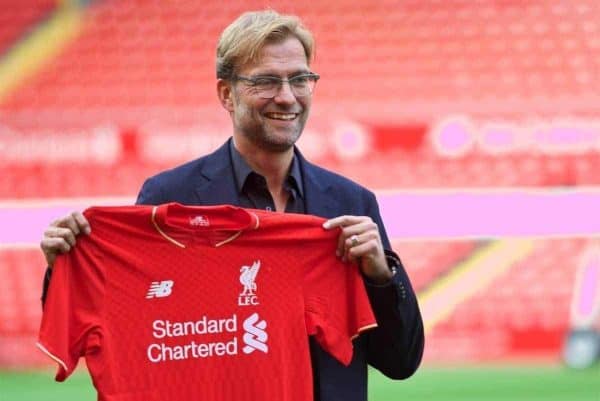
The search had not been random, desperate or knee-jerk, but rather meticulous.
Using formulae that had been successful in bringing the Boston Red Sox their first Baseball World Series in 86 years, FSG’s President, Michael Gordon, used statistical models based on average points per game, goals per game, and the subsequent financial results to identify suitable candidates.
Klopp had, of course, taken over a floundering Borussia Dortmund and conquered the mighty Bayern Munich – twice. Within four years of taking on 13th placed Dortmund, Klopp had won two Bundesliga titles, the second one with the highest number of points ever in the Bundesliga.
They saw Klopp not as a ‘Coach’ but as a ‘Manager’ – a hugely different title and role in their eyes. Not only did he meet the ‘stats’ criteria, but Klopp had also been described as a person with “uncanny energy and eloquence” – a winning formula for FSG.
Klopp was humble but bold in his first press conference. He promised ‘a title within four years’ which, given the team’s THEN substandard performances and results over a season and a quarter – as well as similar bold claims from his predecessors – was a brave move.
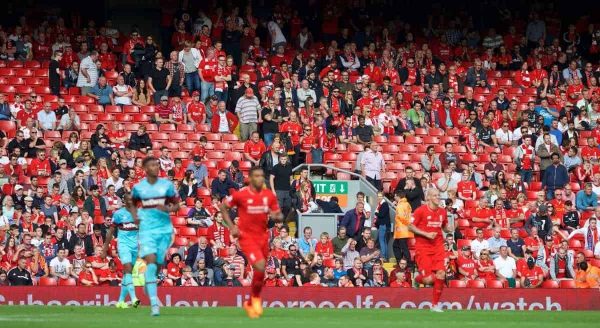
In under five minutes of that initial press conference, Klopp had identified not only what he perceived as a Liverpool problem, but what he termed an ‘Island’ problem, likely hinting as to why the English national team fails so often – a lack of belief.
His preamble to that now legendary ‘doubters to believers’ line was that “the players must feel a difference from now on; they must feel the confidence and trust of everyone around them, the fans. They have to think that they can reach the expectation. So, if they want to help LFC, they have to change from doubter to believer.”
That was the moment the ‘new Liverpool’ – Jurgen Klopp’s Liverpool – was born.
Stage 1: 2015/16 – Building the Foundation
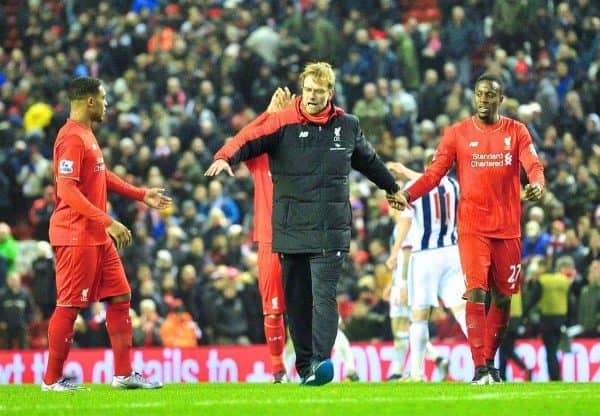
With Liverpool already trailing nine clubs after eight games, Klopp’s first season was always going to be one of observation and learning. Any new manager needs time to understand all aspects of their new club from the tea room to the training regime, the facilities, the transfer policies and the overall culture. Klopp set about identifying the key gaps holding this world-famous club back from regaining their past glories.
Klopp’s first test on the pitch was at White Hart Lane against a Spurs team who, like Liverpool, had won just one of their first eight games. An uneventful draw gave a conservative Liverpool team, playing with Divock Origi as a lone striker, a valuable point; valuable, in the sense that the new era had begun without defeat.
The Liverpool squad that day was indicative of the job ahead. A back five of Mignolet, Clyne, Sakho, Moreno and Skrtel was underwhelming, but it was the bench which was even more telling. Bogdan, Toure, Randall, Allen, Ibe, Teixeira and Sinclair offered little to no strength in depth. Of the 12 players mentioned here, none remain at the club today.
After an equally underwhelming 1-1 draw at home to Southampton (in which Sadio Mane scored an 86th-minute equalizer – for Southampton!) Klopp’s first success came at the third try at Stamford Bridge on Saturday, October 31 2015.
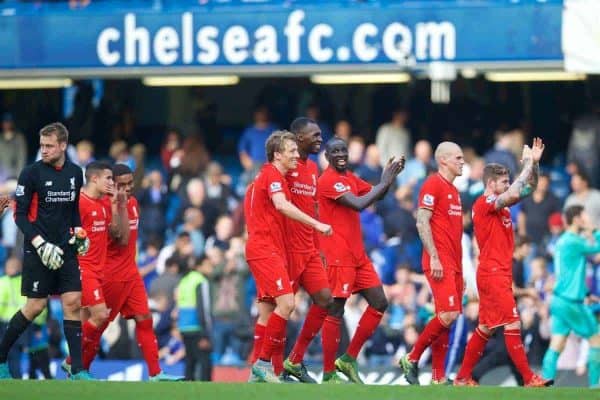
Going behind after just four minutes, the same team that had drawn the first two games (but with Firmino replacing Origi) scored three times to seal the win. Chelsea’s starting eleven that day included Terry, Oscar, Willian, Hazard and Diego Costa.
Klopp had worked his first bit of magic on a ground generally reserved for Liverpool defeats. Two games later, after another away win at Crystal Palace, Klopp’s new ‘heavy metal’ approach blasted Man City 4-1 at the Etihad with Raheem Sterling now wearing blue. A statement of intent had been made, but the reality was that this was a team requiring a rebuild, as subsequent results proved.
The season concluded with Liverpool in eighth position, six points outside the Champions League spots. However, in a matter of only months after his arrival, Klopp had guided his new club to appearances in the League Cup and Europa League finals. While both ended in disappointment, a first European Final of any kind since 2007 was well received by the fans.
What was clear from the players at Klopp’s disposal was that although his defenders were a mixed bag in terms of ability, at least he had them in suitable competitive numbers.
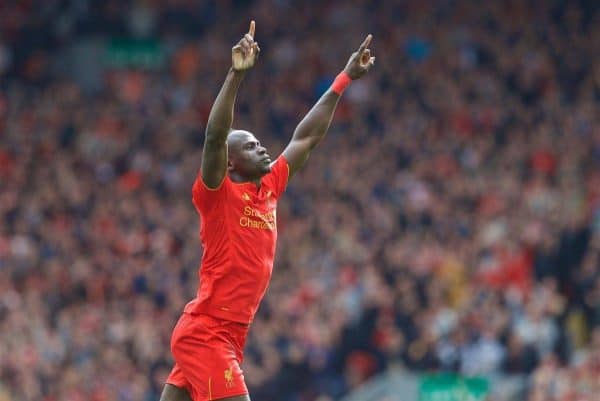
In contrast, in terms of attacking options, the cupboard was close to bare. Maybe it was this realisation that saw Klopp buck the accepted trend of building a team from the back, instead building it from the front.
On June 28 he made what was his third Liverpool signing, but the first one of major significance.
Sadio Mane was brought in from Southampton for £30 million. While not immediately apparent, the quintessential ‘Klopp’ player had been captured. Many questioned the fee and the manager’s choice, but Jurgen Klopp has little time for the opinion of pundits. Mane fitted the Klopp mould to a T and we now know that it was an important first step towards an all-conquering blueprint.
In another statement of intent, no fewer than 11 players were moved on in 2016 alone, including the likes of Martin Skrtel, Jordan Ibe, Joe Allen, Christian Benteke and Mario Balotelli. Klopp’s evolution and masterplan were well and truly underway.
Stage 2: 2016/17 – Klopp’s Red Machine Takes Shape
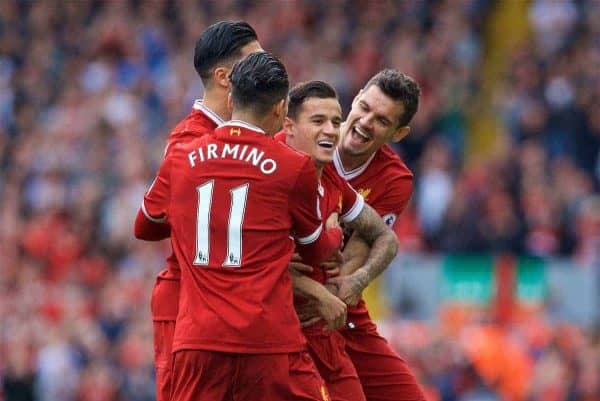
With a full season now under his belt, Klopp had had adequate time to fully evaluate all aspects of the club, both on and off the pitch.
As the FSG/Klopp era has evolved it has become more apparent just how much emphasis is placed upon meticulous data collection, analysis and subsequent decision making.
This scientific, detail-oriented approach has been described as ‘stunning and mind-blowing’ by people within the club who have witnessed the scope of it. I can tell you that it goes far, far beyond what we see or hear about in public.
The German’s first full season saw the fruits of this approach with major improvement versus his first ‘partial’ season. From the relative anonymity of eighth place, Klopp guided the club back to the Champion’s League places at the first attempt. It also resulted in six more wins, four fewer defeats and 16 more points than 2015/16.
Tellingly, the goal difference improved from +13 to +36 due to a more potent attack, a more consistent defence and new clear identity and balance to the team’s play. It was still early days, but progress all over the pitch was clear.
On June 22 2017, Klopp made a move that at the time was considered a very good but less than earth-shattering signing, but which in hindsight was the kind of Klopp masterstroke we have all now become accustomed to.
Mohamed Salah arrived from Roma for £34 million. A month later, the signing of Andy Robertson for £8 million from Hull City was confirmed. The doubters and critics questioned if either could make the grade with Mo having had an unsuccessful spell at Chelsea and Andy arriving from a relegated team.
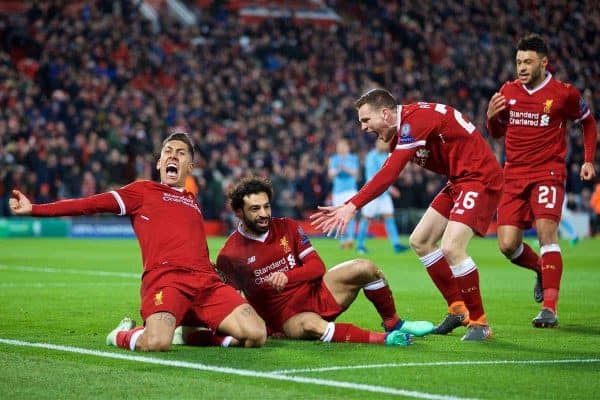
How wrong they were.
Two signings in the space of four weeks for £42 million who have since developed into one of the world’s best strikers and world’s best left-backs. The aforementioned meticulous planning and in-depth analysis of player metrics were paying off.
The following season, 2017/18, was a consolidation season in the league as the new signings were bedded in, while at the same time making major waves in Europe. Liverpool were back in a Champions League final for the first time since 2007 – a major statement from a team close to finding its identity.
While the unexpected final appearance came maybe a little too soon in the overall project rebuild and ended in disappointment, after many years in the Champions League wilderness we were once again front and centre among the European elite.
For visual reference, these are the final league stats by season in Klopp’s four full campaigns to date (and the 2015/16 partial season):

Stage 3: 2018 to Present – Completing The Jigsaw
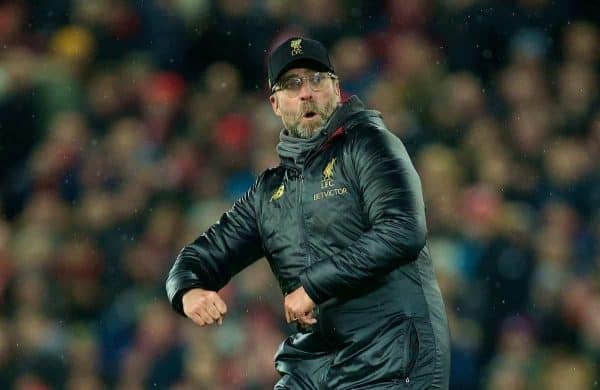
With Jurgen Klopp and his elite backroom team well and truly established both in terms of their day-to-day running of the club and their methods, it was time to move the club from one of promise to one of power and glory.
Philippe Coutinho, one of the players Klopp genuinely hoped would play a key part in future success would complicate matters by disappointedly engineered a move away in January 2018. As much as Jurgen tried to convince him otherwise, a ‘believer’ Coutinho was not, and he followed a long line of Reds superstars to jump ship to one of the Spanish giants.
Once again, the doubts crept in for even the most fervent believers. We’d seen it all before with the likes of Suarez, Mascherano, McManaman, Owen and Alonso and history seemed to be repeating itself.
Make no mistake, it was a blow to Klopp plans. He was constructing a team of elite players which would have included Coutinho – but importantly, he only wanted elite players who were committed to play for him and for Liverpool FC.
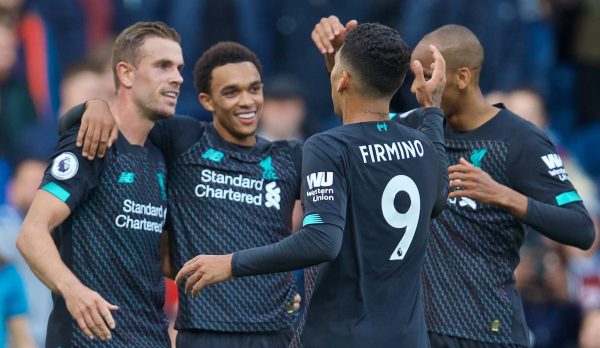
So, what did Klopp do? As he always does, he turned a negative into an astonishing positive.
By now, he’d already constructed an elite front three with Bobby, Mo and Sadio well on their way to becoming the world’s most feared strike force and breaking records by the week.
He’d built the kind of functional, effective, smothering, high energy midfield machine he craved with Milner, Keita, Henderson, Wijnaldum, Oxlade-Chamberlain, Fabinho and Shaqiri all top-class options and several youngsters showing promise.
He had evolved the full-back role from the days of Moreno and Clyne to the mega-attacking talents of Andy Robertson and young Scouser Trent Alexander-Arnold.
Just two, admittedly huge gaps were left to fill. Not just a reliable goalkeeper, but a world-class goalkeeper; not just a new centre half, but a dominant, world-class, elite centre back.
There is no word more fitting than ‘masterstroke’ to describe the reinvestment of the Coutinho money to bring in the supreme talents of Alisson Becker and Virgil van Dijk. Klopp’s single-minded, laser-focused assault on perfection had switched to overdrive. These were statement signings.
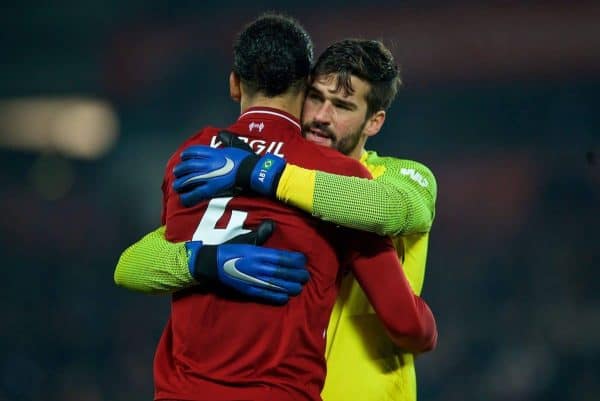
Within a mere three and a half years since that memorable press conference, Klopp had taken Liverpool to four major finals. He had revolutionized a club mired in mid-table upon his arrival to be crowned the champions of Europe.
By four-and-a-half years, he had ‘conquered the bloody world’ and made Liverpool not just world champions and champions of England for the 19th time, but one of the greatest teams to ever grace England’s top division.
The truly inspiring news is that FSG, Klopp and his team currently show no signs of complacency after such stunning success.
September 2020 saw the elite signings of one of the world’s greatest midfielders, Thiago Alcantara and the explosive introduction of the superb Diogo Jota. Both add exceptional quality, top-class competition and options to an already elite squad.
And below is a table showing the incredible transfer dealings for each year of the Klopp era. These are all the players signed or sold in excess of £10 million:
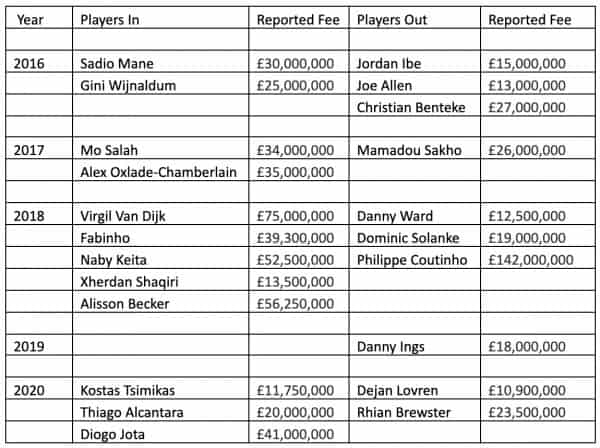
* Net spend including ALL players bought and sold by Klopp = £103 million
The Final Word
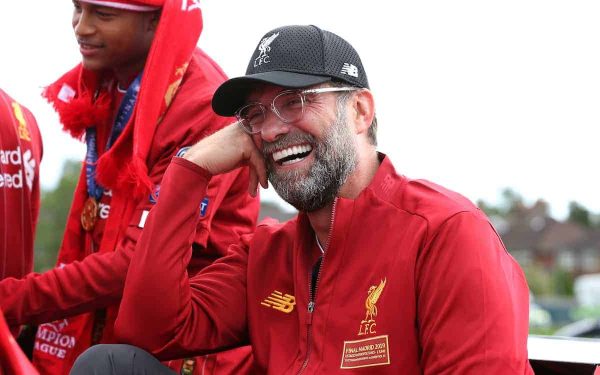
Not even the most optimistic of fans could have predicted the seismic impact Jurgen Klopp’s appointment would have on Liverpool Football Club.
Any world-class team, in any sport, consists of a combination of technical excellence, unwavering belief and fierce determination to be the best. This current Liverpool squad possesses all three in abundance.
Each and every one of them has improved under the coaching and direction of the manager – technically, physically and mentally.
Only a team/squad with an obsessive will to win and monster mentality can achieve a club record-equalling 63 home games without defeat, and taste defeat only six times in the last 92 league games (two of which came after the league was already secured last season).
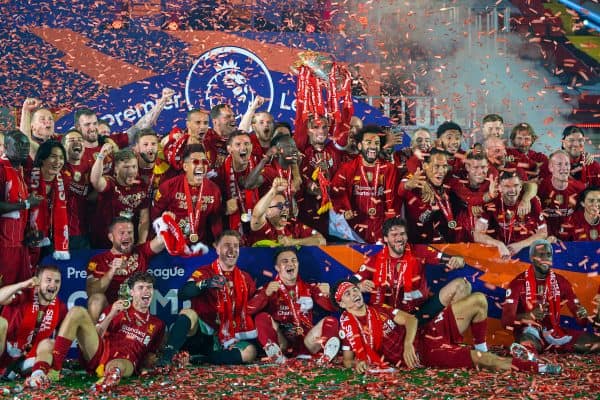
It becomes even more apparent how stunning those numbers are when you consider that in the season prior to Klopp’s arrival, Liverpool lost 12 of their 38 league games.
When Jurgen arrived at Anfield to a media frenzy he made it clear that any manager is not and should not be judged upon his arrival, but upon his departure.
When his time at Liverpool comes to an end, with stunning achievements already secured and likely more to come, he will go down in Anfield folklore as one of the greatest managers, greatest characters and greatest honourary Scousers our club and city has ever seen.

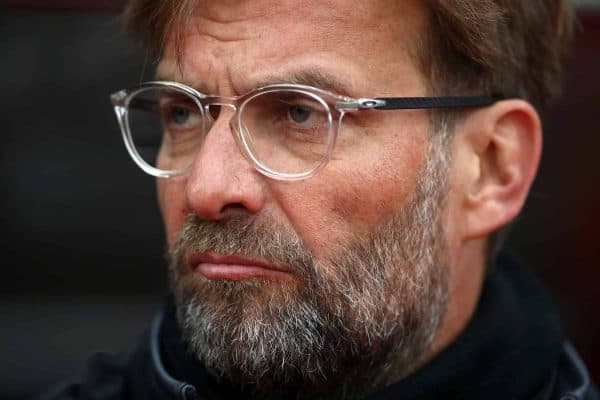


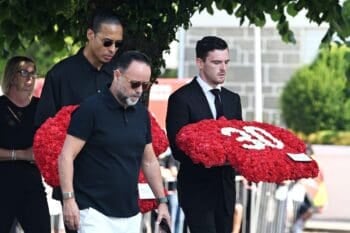
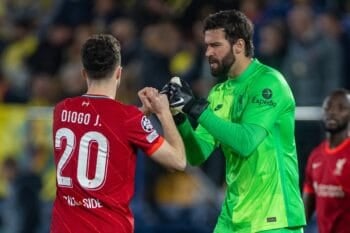
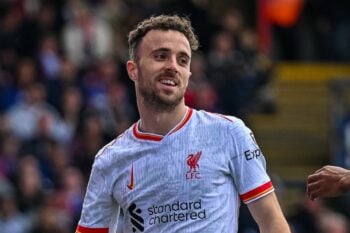
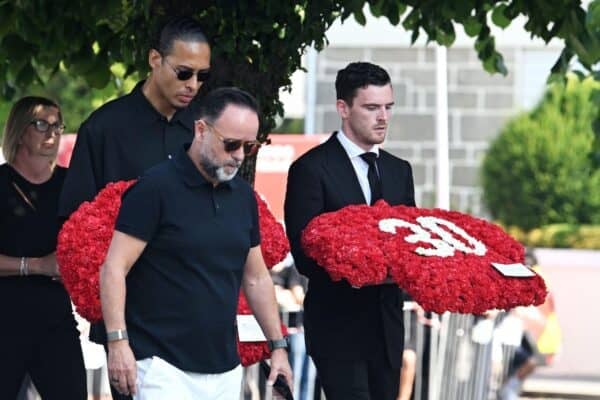
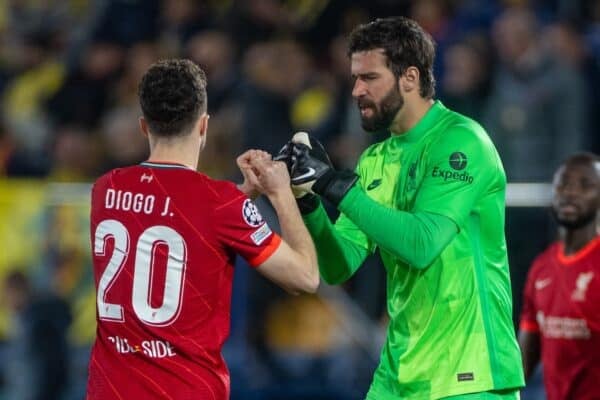
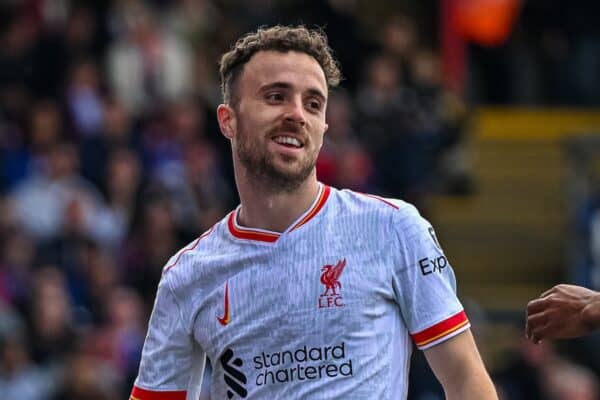
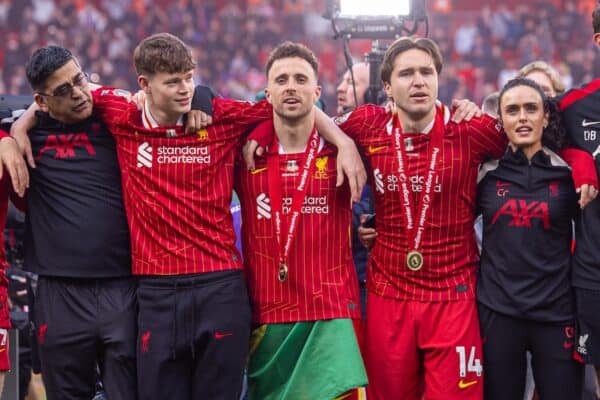
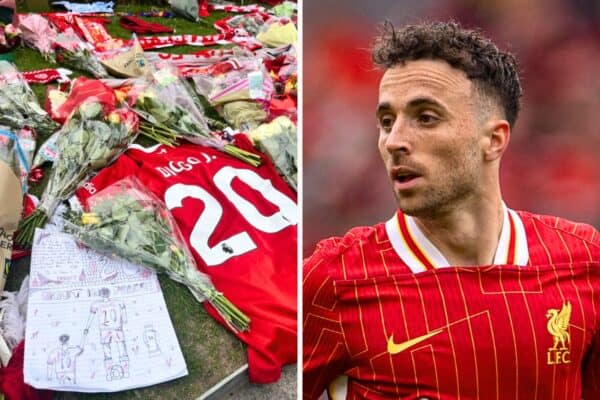
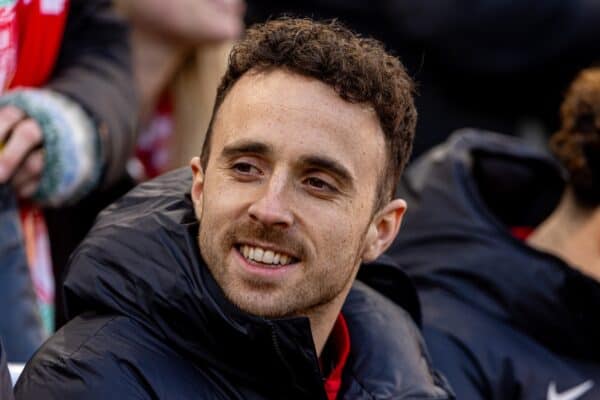
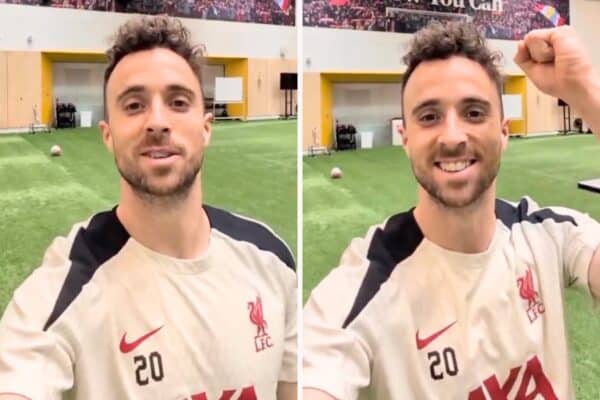
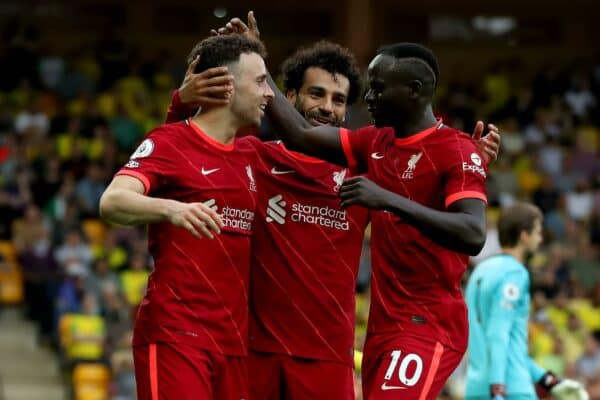



Fan Comments